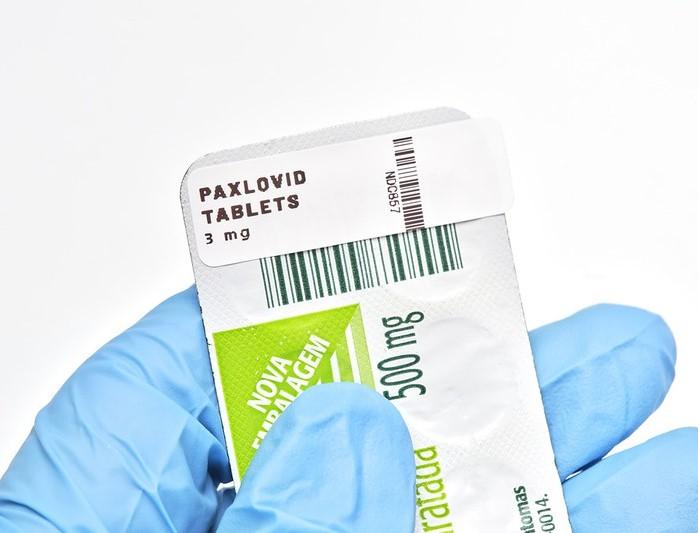A new real-world study in Greece finds that for high-risk patients, COVID-19 antivirals are highly effective in reducing the risk of both hospitalization and death. The study is published in The Journal of Infectious Diseases.
Patients who were older than 75, and reported good drug adherence benefitted the most from the drugs molnupiravir (Lagevrio) and nirmatrelvir/ritonavir (Paxlovid).
The case-control study was performed by pairing age-matched control groups of SARS-CoV-2-positive patients who did not receive oral antiviral therapy, with those who who given one of the two antivirals approved for use in Greece among patients at the highest risk of severe complications from COVID-19.
Patients were 65 years old or older, non-hospitalized, and received either molnupiravir between February 2, 2022, and March 5, 2022 (6,474 case-patients), or nirmatrelvir/ritonavir between March 26, 2022, and July 20, 2022. (23,191 case-patients).
Our findings revealed that the administration of either molnupiravir or nirmatrelvir/ritonavir reduced the risk of hospitalization and death in this highly vulnerable patient cohort.
At the time of the study, Omicron strains BA.1, BA.2, and BA.5, were circulating in Greece.
Overall the authors found that molnupiravir reduced the risk of COVID-19 hospitalization by 60% and death by 69%, while Paxlovid cuts hospitalizations by 69% and deaths by 72%.
"Our findings revealed that the administration of either molnupiravir or nirmatrelvir/ritonavir reduced the risk of hospitalization and death in this highly vulnerable patient cohort. Specifically, the risk of hospital admission was significantly lower for molnupiravir recipients, most notably among those who were 75 years of age or older," the authors said.
Molnupiravir reduced the risk of hospitalization (odds ratio [OR] 0.40, p < 0.001) and death (OR 0.31, p < 0.001) among these patients based on data adjusted for age, previous SARS-CoV-2 infection, vaccination status, and time elapsed since the most recent vaccination, the authors said.
Nirmatrelvir/ritonavir also resulted in significant reductions in the risk of hospitalization (OR 0.31, p < 0.001) and death (OR 0.28, p < 0.00).
Complete adherence to drug therapy matters
For both drugs, complete adherence to a multi-day, multi-dose regimen was important in reducing the risk of hospitalization and death. For molnupiravir, the drug was approximately 70% more effective in patients who were fully adherent compared to those reporting poor or only partial adherence to this drug regime, the authors said.
The authors of the study conclude their findings secure the place for COVID-19 antiviral therapies in today’s landscape.
The use of oral antiviral therapy in these populations is thus strongly indicated.
"Although the risk of disease progression and death has been significantly reduced by mass vaccination, hybrid immunity, and the intrinsic characteristics of Omicron (BA.1.1.529) subvariants, the results from our real-world study suggest that antivirals can further reduce the risk of hospitalization and death most notably in highly vulnerable populations," they wrote.
"The use of oral antiviral therapy in these populations is thus strongly indicated to reduce the burden of disease."



















